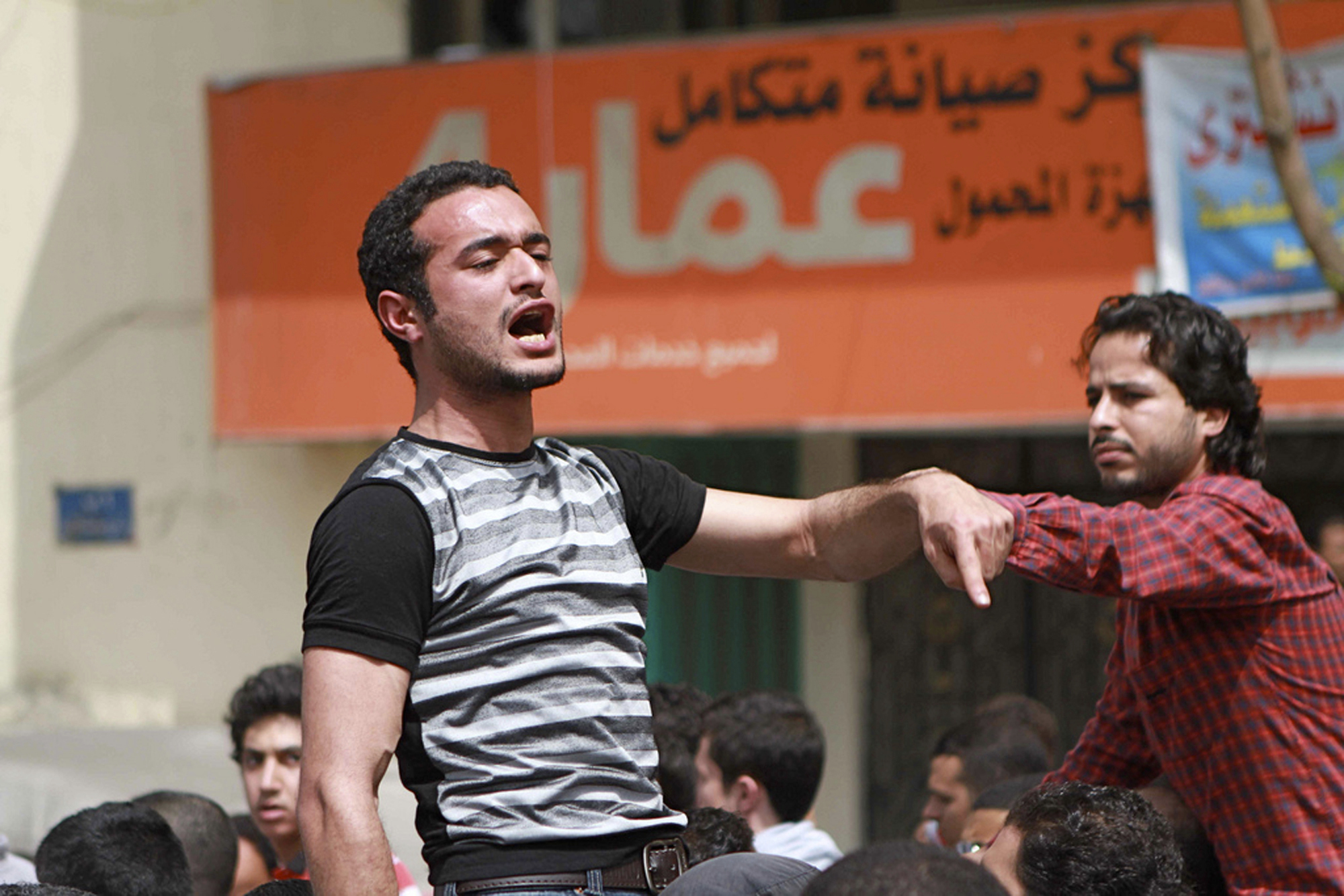One of the Egyptian activists behind the 2011 uprising that toppled longtime autocrat Hosni Mubarak walked free from prison Saturday following a presidential pardon after spending nearly 10 years behind bars.
Authorities released prominent activist Ahmed Douma from a prison complex outside Cairo where he was serving a 15-year sentence after being convicted of taking part in clashes between protesters and security forces in the Egyptian capital in December 2011, according to rights lawyer Khaled Ali.
“Douma is free,” Ali wrote on Facebook. He posted a photo showing the activist along with former presidential candidate Hamdeen Sabahi outside the Badr prison complex.
The nearly weeklong clashes that left some 40 people dead erupted after mostly young activists took to the streets to protest the post-Mubarak political transition overseen by the military. The riot involved a fire that gutted parts of a library housing rare manuscripts and books. Other government buildings, including the parliament, were damaged during the protests.
The clashes brought international attention when riot police were filmed beating, stripping and kicking female demonstrators in Cairo’s Tahrir Square, the epicenter of the 2011 uprising.
Douma was pardoned along with four other prisoners, according to a presidential decree. The pardons, dated Saturday, were published in Egypt’s Official Gazette.
Activists received the news of Douma’s freedom with jubilation on social media, and called for the release of other jailed pro-democracy activists.
“Douma has not set foot out of prison since 2013 … my heart will burst,” Mona Seif, the sister of jailed activist Alaa Abdel-Fatthah, wrote on Facebook.
Douma, 37, was first sentenced in 2015 to life in prison along with 229 other defendants who were all tried in absentia. Douma appealed and Egypt’s highest appeals court ordered his retrial, ultimately leading to the 15-year sentence and a fine of 6 million Egyptian pounds, about $195,000.
He was one of the faces of the 2011 pro-democracy protests that swept the Arab world’s most populous country and ended Mubarak’s nearly three-decade of autocratic rule. He was also a fierce critic of Islamist President Mohammed Morsi, who was overthrown in 2013 amid mass protests against his one-year divisive rule.
For years, many politicians and public figures called on President Abdel Fattah el-Sissi to pardon Douma, as part of mounting calls to end a yearslong crackdown on dissent. Egyptian authorities have in recent months released hundreds of activists after its human rights record came under international scrutiny when it hosted the U.N. climate change summit in November.
Egypt, a close U.S. ally, has waged a wide-scale crackdown on dissent over the past decade, jailing thousands of people. Most of those imprisoned are supporters of Morsi, the Islamist president, but the crackdown has also swept up prominent secular activists.
In recent months el-Sissi’s government has allowed some criticism of its policies amid a daunting economic crisis and growing calls for a political reform ahead of the 2014 presidential elections.
The loosening of the government’s zero-tolerance policy began following the president’s call for a national dialogue in April last year with the aim of crafting recommendations for the country’s future.
El-Sissi said Wednesday he received a set of political, economic and social proposals from the dialogue which will be studied and implemented according to his legal power. Other proposals, he said on the platform X, formerly known as Twitter, would be referred to parliament for deliberations.
(AP)











